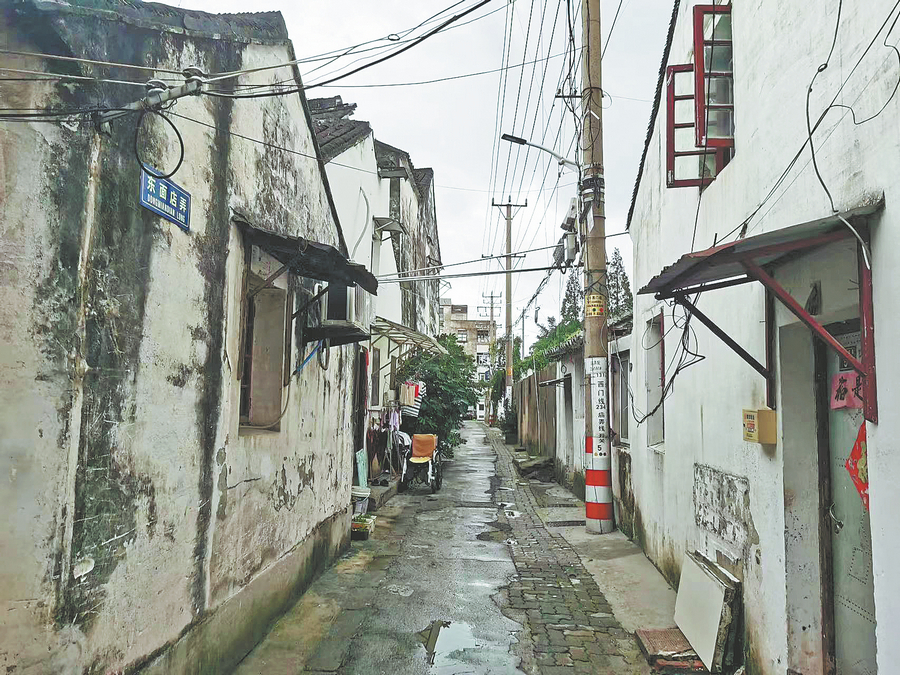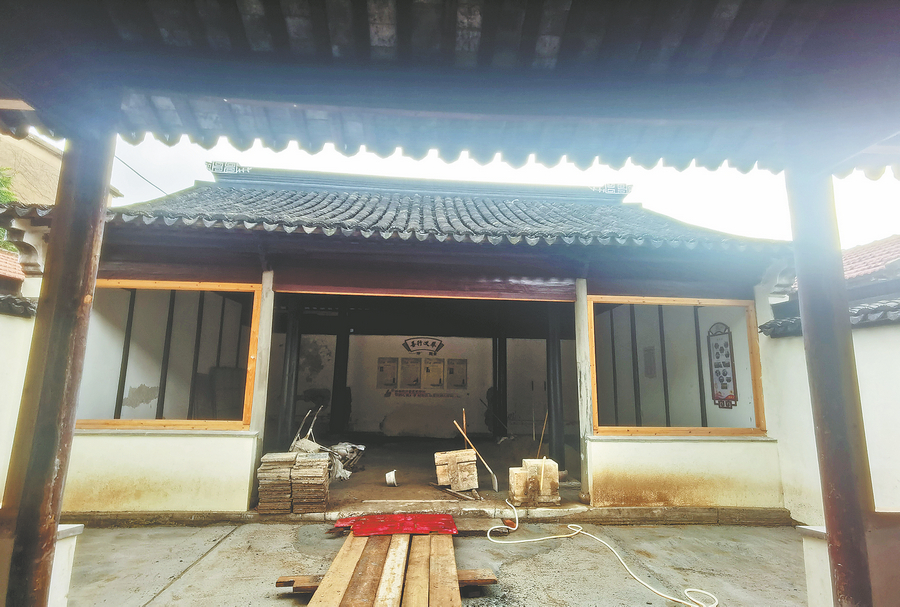

In 2016, Xijing'an (or West Creek Bank) community was one of the first neighborhoods named a provincial-level historical block. Today, visitors can still find in the 17.58-hectare neighborhood the former residence of renowned scholar Ding Zuyin (1871-1930), novelist Zeng Pu (1872-1935) and Shen Shiyou (1858-1917), a poet and connoisseur of Chinese ink stones. The elaborately designed buildings and gardens gave the area special significance in the city's cultural landscape.
However, many old residents have moved out of the area in favor of convenient modern apartment buildings. Some houses have long been deserted and their walls are collapsing. In 2020, the city started a campaign to restore the important historical buildings for modern commercial functions, such as boutique hotels, creative studios, cafes and tea houses.
"A lot of the descendants of the prestigious local families have emigrated," says Shen Yun, director of the tourism department of Yushan Culture and Tourism Resort Administration. "The right of inheritance for some houses is rather complicated, so legally purchasing these historical buildings for commercial development is almost mission impossible."
The local administration came up with a novel plan to rent the houses from the owners, signing long-term leases for 20 years. The arrangement was welcomed by the owners, who will receive the rent money on a yearly basis. The administration also developed a house-swapping plan for the elderly people who choose not to leave the neighborhood.
Some of the old houses were refurbished with modern bathrooms and kitchens, the floors were relaid and walls repainted, and were then re-leased to local residents. People living in the community can be an asset for the new commercial project, Shen Yun says. "The smell of home cooking, and grannies sitting in the yard chatting and sunbathing… these will remind tourists of the history of the area and the lifestyle we all had decades ago."

A retiree, surnamed Xi, and his wife are among those who agreed to such an arrangement, and moved to a refurbished house in the old neighborhood.
"Me and my three siblings grew up nearby. The small lanes and old neighbors are all too familiar to give up," Xi tells China Daily. Surrounded by the same street corner tea tables, loquat trees and a clear water well that is centuries old, Xi is glad to retain much of his old lifestyle, only without the annoying chore of taking out the chamber pot every morning.
Changshu Gucheng Co Ltd, a State-owned enterprise, is responsible for the restoration and renewal of the vintage buildings and gardens. "The less we change, the better," says Zhu Guoqing, general manager of the company.
"If a wood column is rotten from the lower end, we will replace the damaged part and join it with a new piece of wood with the traditional tenon and mortise structure," he says. "We prioritize the protection of the cultural heritage over financial efficiency. The unique local culture and tradition will be the core attraction of the area when it is completed."
As well as the ongoing Xijing'an neighborhood renewal project is the Shanqianfang compound at the foot of Yushan Mountain. A creative culture industry park transformed from a cluster of deserted factory workshops and warehouses, it has been recognized as a landmark project for urban renewal in Changshu. Inspired by the successful example of Shanqianfang, the city has seen several more creative industry parks and blocks open, Shen says.